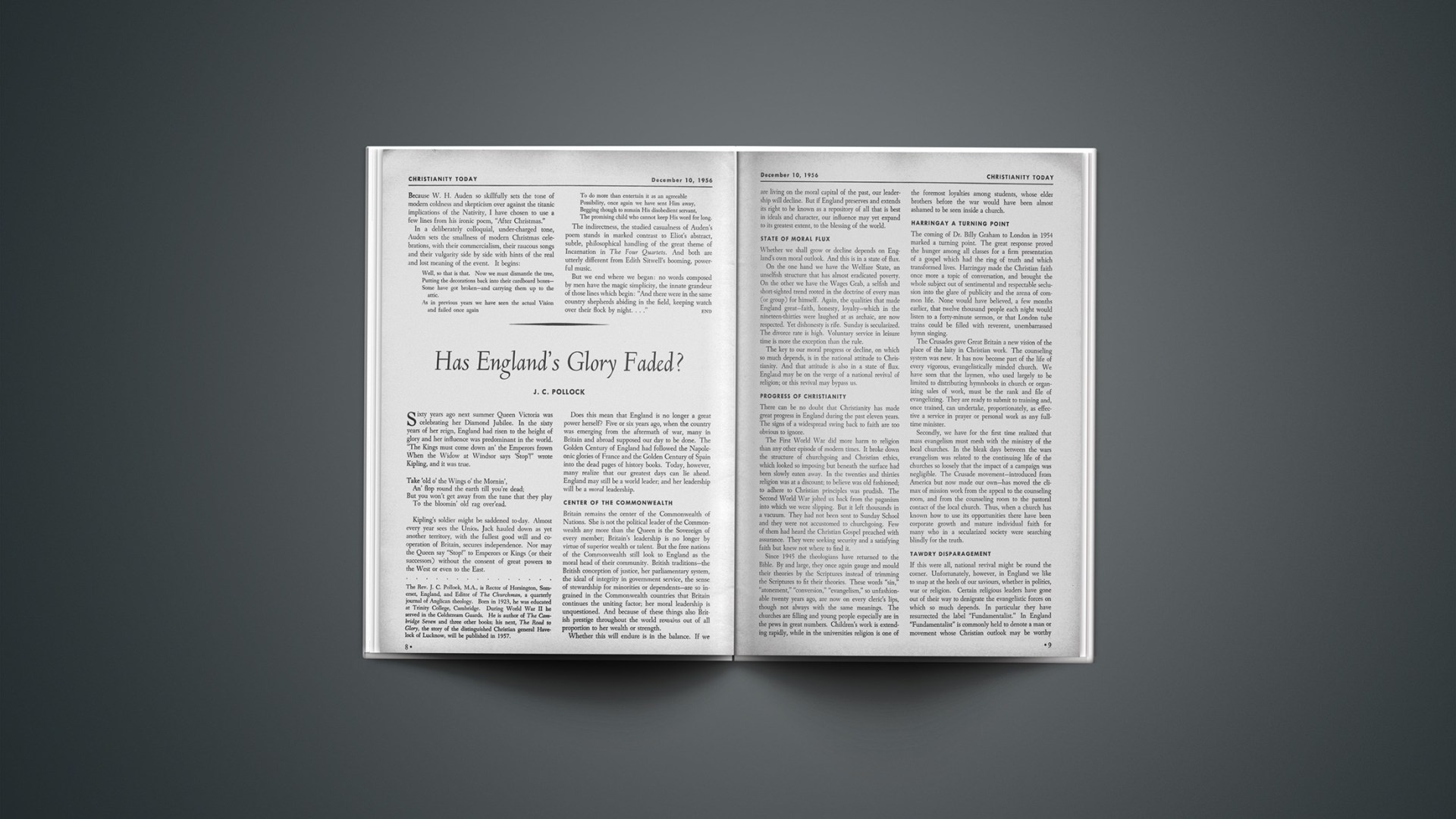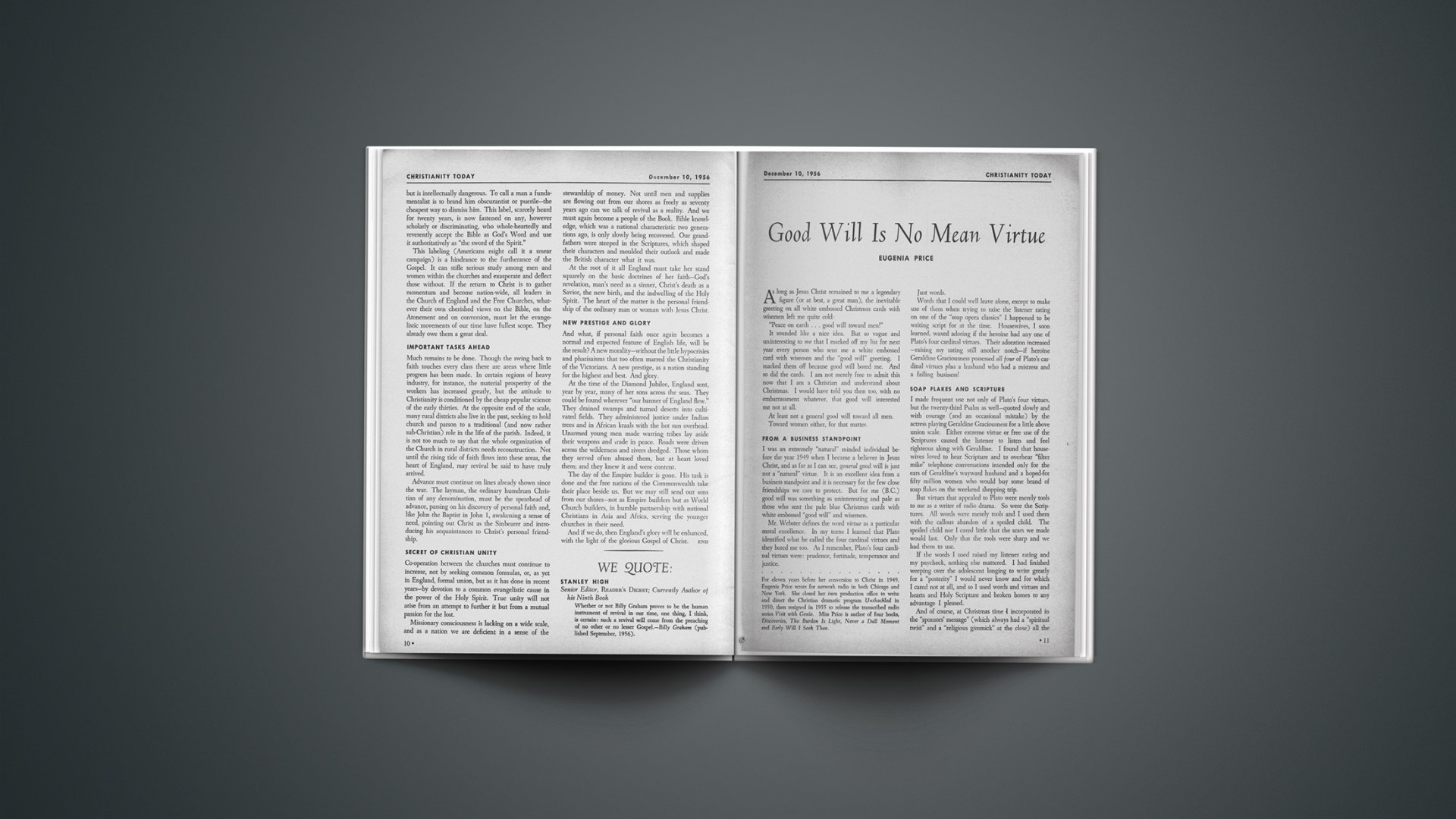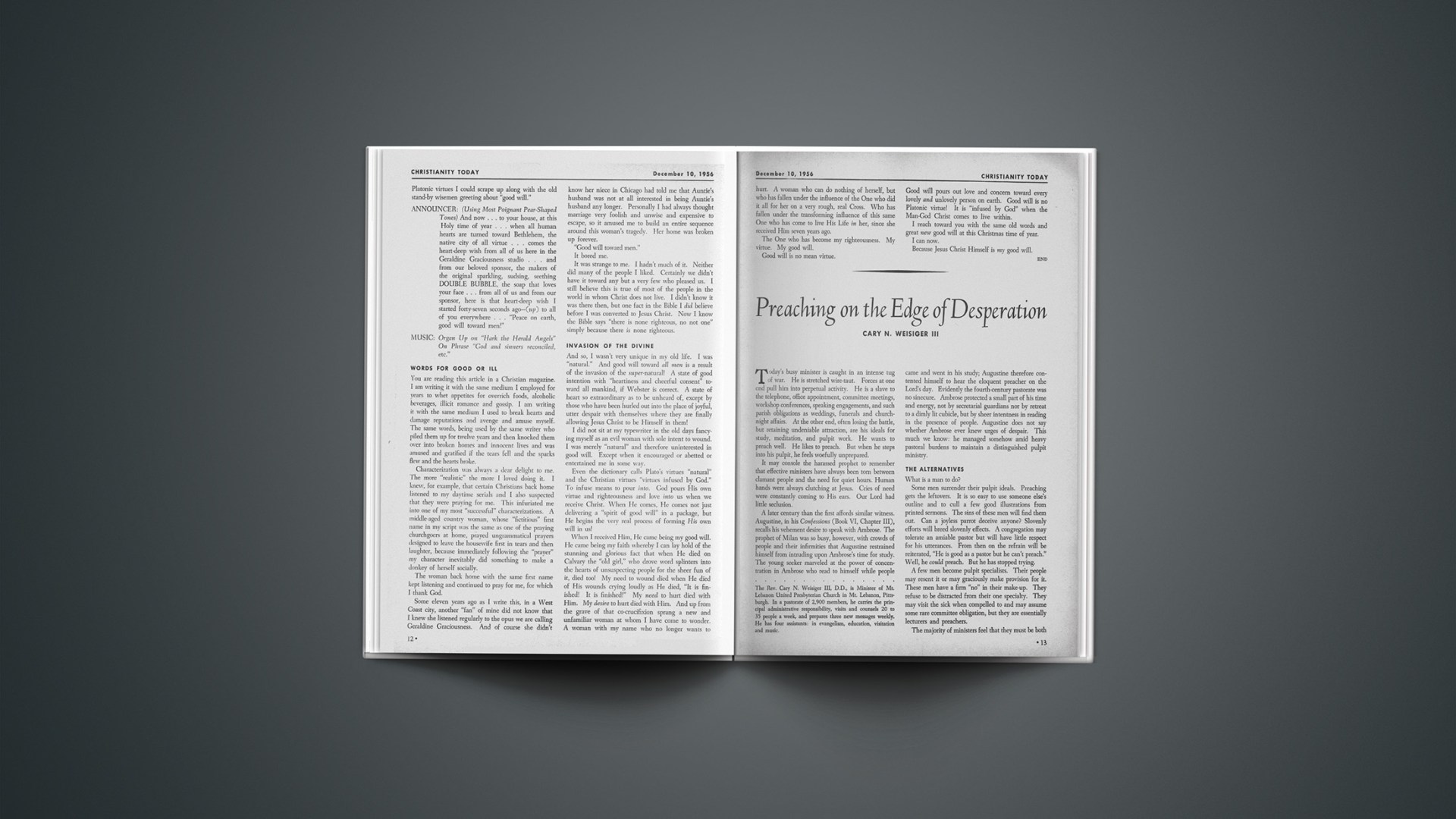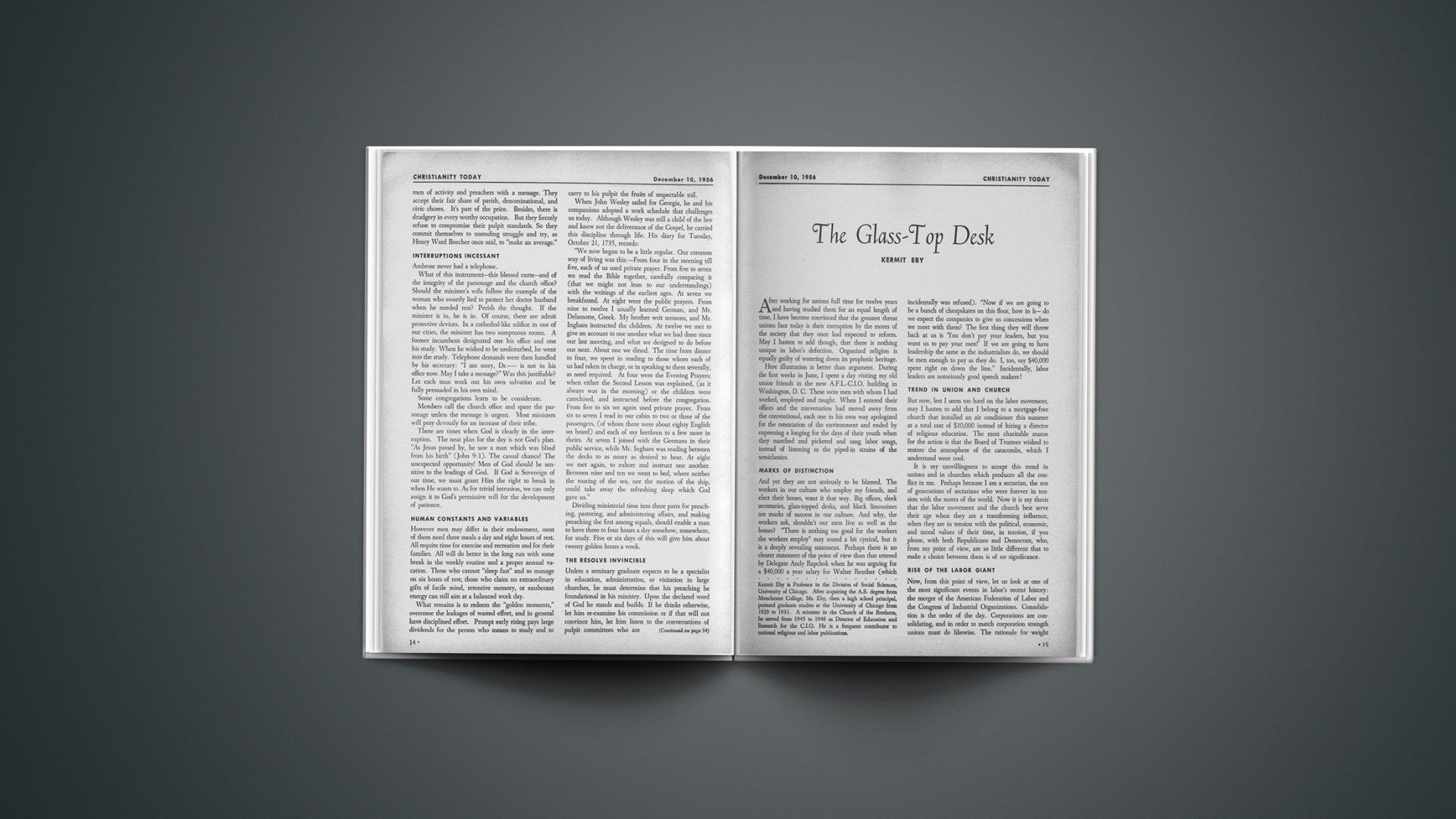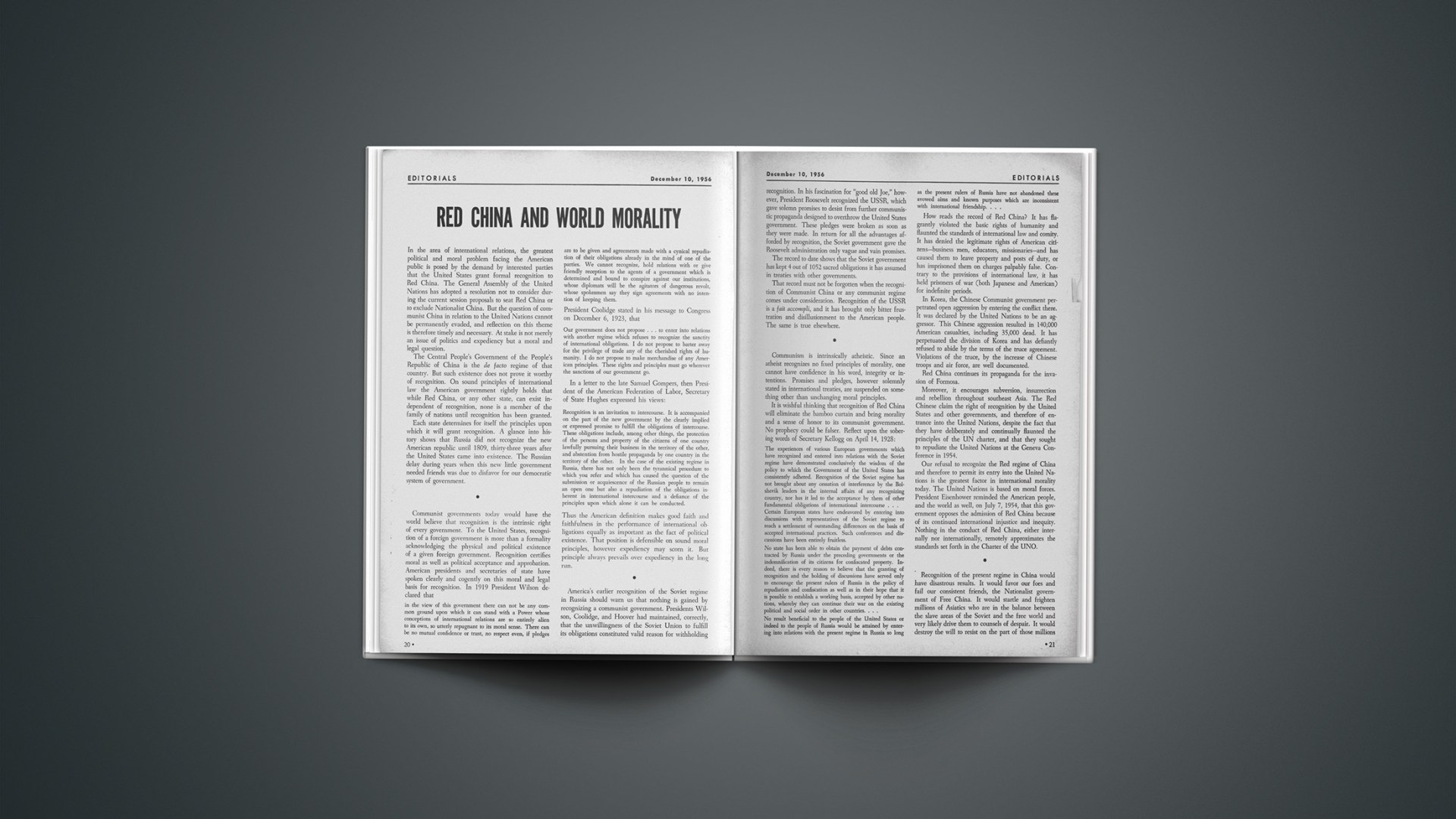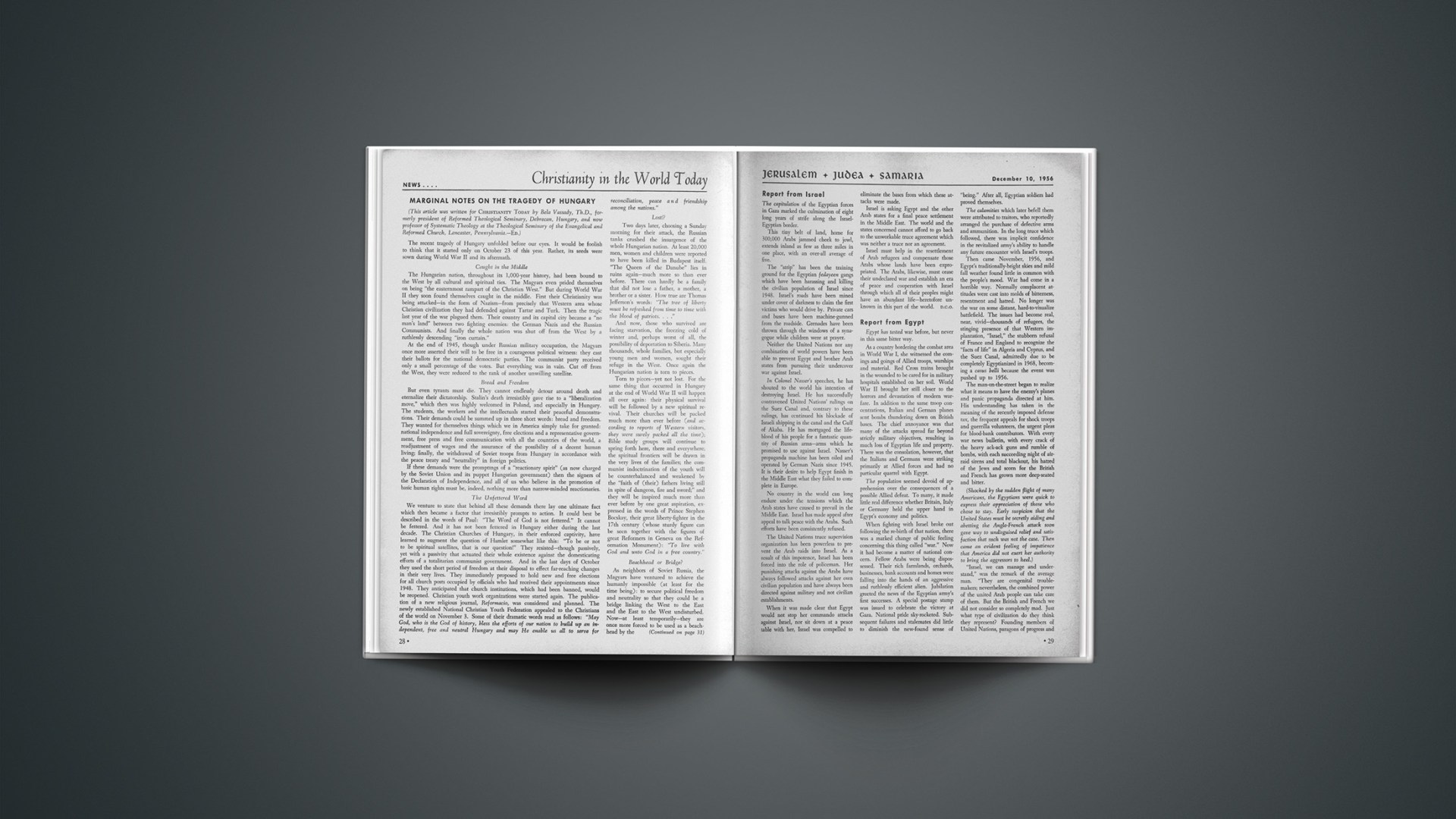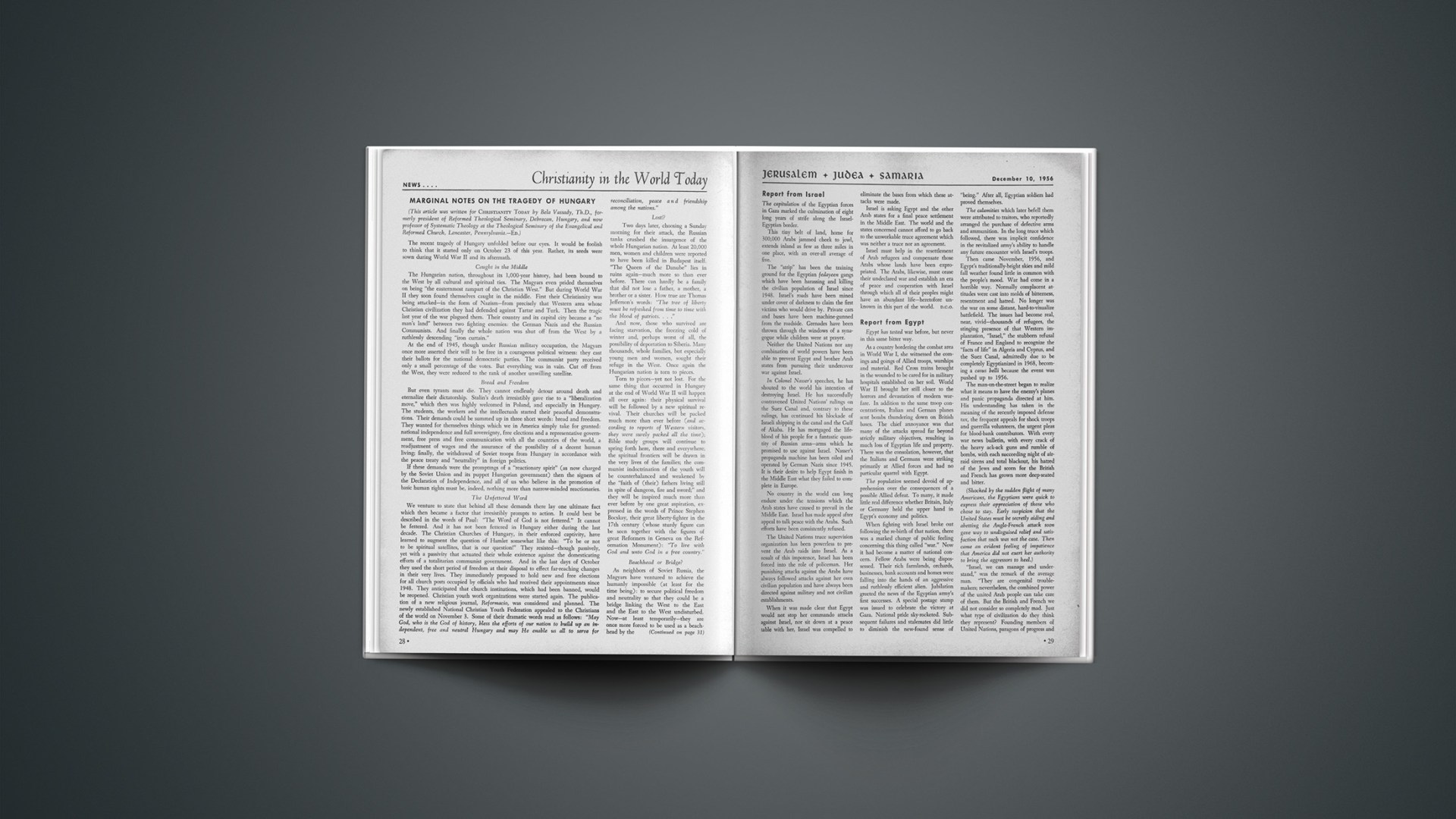Sixty years ago next summer Queen Victoria was celebrating her Diamond Jubilee. In the sixty years of her reign, England had risen to the height of glory and her influence was predominant in the world. “The Kings must come down an’ the Emperors frown When the Widow at Windsor says ‘Stop’!” wrote Kipling, and it was true.
Take’old o’ the Wings o’ the Mornin’,
An’ flop round the earth till you’re dead;
But you won’t get away from the tune that they play
To the bloomin’ old rag over’ead.
Kipling’s soldier might be saddened to-day. Almost every year sees the Union, Jack hauled down as yet another territory, with the fullest good will and cooperation of Britain, secures independence. Nor may the Queen say “Stop!” to Emperors or Kings (or their successors) without the consent of great powers to the West or even to the East.
Does this mean that England is no longer a great power herself? Five or six years ago, when the country was emerging from the aftermath of war, many in Britain and abroad supposed our day to be done. The Golden Century of England had followed the Napoleonic glories of France and the Golden Century of Spain into the dead pages of history books. Today, however, many realize that our greatest days can lie ahead. England may still be a world leader; and her leadership will be a moral leadership.
Center Of The Commonwealth
Britain remains the center of the Commonwealth of Nations. She is not the political leader of the Commonwealth any more than the Queen is the Sovereign of every member; Britain’s leadership is no longer by virtue of superior wealth or talent. But the free nations of the Commonwealth still look to England as the moral head of their community. British traditions—the British conception of justice, her parliamentary system, the ideal of integrity in government service, the sense of stewardship for minorities or dependents—are so ingrained in the Commonwealth countries that Britain continues the uniting factor; her moral leadership is unquestioned. And because of these things also British prestige throughout the world remains out of all proportion to her wealth or strength.
Whether this will endure is in the balance. If we are living on the moral capital of the past, our leadership will decline. But if England preserves and extends its right to be known as a repository of all that is best in ideals and character, our influence may yet expand to its greatest extent, to the blessing of the world.
State Of Moral Flux
Whether we shall grow or decline depends on England’s own moral outlook. And this is in a state of flux.
On the one hand we have the Welfare State, an unselfish structure that has almost eradicated poverty. On the other we have the Wages Grab, a selfish and short-sighted trend rooted in the doctrine of every man (or group) for himself. Again, the qualities that made England great—faith, honesty, loyalty—which in the nineteen-thirties were laughed at as archaic, are now respected. Yet dishonesty is rife. Sunday is secularized. The divorce rate is high. Voluntary service in leisure time is more the exception than the rule.
The key to our moral progress or decline, on which so much depends, is in the national attitude to Christianity. And that attitude is also in a state of flux. England may be on the verge of a national revival of religion; or this revival may bypass us.
Progress Of Christianity
There can be no doubt that Christianity has made great progress in England during the past eleven years. The signs of a widespread swing back to faith are too obvious to ignore.
The First World War did more harm to religion than any other episode of modern times. It broke down the structure of churchgoing and Christian ethics, which looked so imposing but beneath the surface had been slowly eaten away. In the twenties and thirties religion was at a discount; to believe was old fashioned; to adhere to Christian principles was prudish. The Second World War jolted us back from the paganism into which we were slipping. But it left thousands in a vacuum. They had not been sent to Sunday School and they were not accustomed to churchgoing. Few of them had heard the Christian Gospel preached with assurance. They were seeking security and a satisfying faith but knew not where to find it.
Since 1945 the theologians have returned to the Bible. By and large, they once again gauge and mould their theories by the Scriptures instead of trimming the Scriptures to fit their theories. These words “sin,” “atonement,” “conversion,” “evangelism,” so unfashionable twenty years ago, are now on every cleric’s lips, though not always with the same meanings. The churches are filling and young people especially are in the pews in great numbers. Children’s work is extending rapidly, while in the universities religion is one of the foremost loyalties among students, whose elder brothers before the war would have been almost ashamed to be seen inside a church.
Harringay A Turning Point
The coming of Dr. Billy Graham to London in 1954 marked a turning point. The great response proved the hunger among all classes for a firm presentation of a gospel which had the ring of truth and which transformed lives. Harringay made the Christian faith once more a topic of conversation, and brought the whole subject out of sentimental and respectable seclusion into the glare of publicity and the arena of common life. None would have believed, a few months earlier, that twelve thousand people each night would listen to a forty-minute sermon, or that London tube trains could be filled with reverent, unembarrassed hymn singing.
The Crusades gave Great Britain a new vision of the place of the laity in Christian work. The counseling system was new. It has now become part of the life of every vigorous, evangelistically minded church. We have seen that the laymen, who used largely to be limited to distributing hymnbooks in church or organizing sales of work, must be the rank and file of evangelizing. They are ready to submit to training and, once trained, can undertake, proportionately, as effective a service in prayer or personal work as any fulltime minister.
Secondly, we have for the first time realized that mass evangelism must mesh with the ministry of the local churches. In the bleak days between the wars evangelism was related to the continuing life of the churches so loosely that the impact of a campaign was negligible. The Crusade movement—introduced from America but now made our own—has moved the climax of mission work from the appeal to the counseling room, and from the counseling room to the pastoral contact of the local church. Thus, when a church has known how to use its opportunities there have been corporate growth and mature individual faith for many who in a secularized society were searching blindly for the truth.
Tawdry Disparagement
If this were all, national revival might be round the corner. Unfortunately, however, in England we like to snap at the heels of our saviours, whether in politics, war or religion. Certain religious leaders have gone out of their way to denigrate the evangelistic forces on which so much depends. In particular they have resurrected the label “Fundamentalist.” In England “Fundamentalist” is commonly held to denote a man or movement whose Christian outlook may be worthy but is intellectually dangerous. To call a man a fundamentalist is to brand him obscurantist or puerile—the cheapest way to dismiss him. This label, scarcely heard for twenty years, is now fastened on any, however scholarly or discriminating, who whole-heartedly and reverently accept the Bible as God’s Word and use it authoritatively as “the sword of the Spirit.”
This labeling (Americans might call it a smear campaign) is a hindrance to the furtherance of the Gospel. It can stifle serious study among men and women within the churches and exasperate and deflect those without. If the return to Christ is to gather momentum and become nation-wide, all leaders in the Church of England and the Free Churches, whatever their own cherished views on the Bible, on the Atonement and on conversion, must let the evangelistic movements of our time have fullest scope. They already owe them a great deal.
Important Tasks Ahead
Much remains to be done. Though the swing back to faith touches every class there are areas where little progress has been made. In certain regions of heavy industry, for instance, the material prosperity of the workers has increased greatly, but the attitude to Christianity is conditioned by the cheap popular science of the early thirties. At the opposite end of the scale, many rural districts also live in the past, seeking to hold church and parson to a traditional (and now rather sub-Christian) role in the life of the parish. Indeed, it is not too much to say that the whole organization of the Church in rural districts needs reconstruction. Not until the rising tide of faith flows into these areas, the heart of England, may revival be said to have truly arrived.
Advance must continue on lines already shown since the war. The layman, the ordinary humdrum Christian of any denomination, must be the spearhead of advance, passing on his discovery of personal faith and, like John the Baptist in John 1, awakening a sense of need, pointing out Christ as the Sinbearer and introducing his acquaintances to Christ’s personal friendship.
Secret Of Christian Unity
Co-operation between the churches must continue to increase, not by seeking common formulas, or, as yet in England, formal union, but as it has done in recent years—by devotion to a common evangelistic cause in the power of the Holy Spirit. True unity will not arise from an attempt to further it but from a mutual passion for the lost.
Missionary consciousness is lacking on a wide scale, and as a nation we are deficient in a sense of the stewardship of money. Not until men and supplies are flowing out from our shores as freely as seventy years ago can we talk of revival as a reality. And we must again become a people of the Book. Bible knowledge, which was a national characteristic two generations ago, is only slowly being recovered. Our grandfathers were steeped in the Scriptures, which shaped their characters and moulded their outlook and made the British character what it was.
At the root of it all England must take her stand squarely on the basic doctrines of her faith—God’s revelation, man’s need as a sinner, Christ’s death as a Savior, the new birth, and the indwelling of the Holy Spirit. The heart of the matter is the personal friendship of the ordinary man or woman with Jesus Christ.
New Prestige And Glory
And what, if personal faith once again becomes a normal and expected feature of English life, will be the result? A new morality—without the little hypocrisies and pharisaisms that too often marred the Christianity of the Victorians. A new prestige, as a nation standing for the highest and best. And glory.
At the time of the Diamond Jubilee, England sent, year by year, many of her sons across the seas. They could be found wherever “our banner of England flew.” They drained swamps and turned deserts into cultivated fields. They administered justice under Indian trees and in African kraals with the hot sun overhead. Unarmed young men made warring tribes lay aside their weapons and trade in peace. Roads were driven across the wilderness and rivers dredged. Those whom they served often abused them, but at heart loved them; and they knew it and were content.
The day of the Empire builder is gone. His task is done and the free nations of the Commonwealth take their place beside us. But we may still send our sons from our shores—not as Empire builders but as World Church builders, in humble partnership with national Christians in Asia and Africa, serving the younger churches in their need.
And if we do, then England’s glory will be enhanced, with the light of the glorious Gospel of Christ.
The Rev. J. C. Pollock, M.A., is Rector of Horsington, Somerset, England, and Editor of The Churchman, a quarterly journal of Anglican theology. Born in 1923, he was educated at Trinity College, Cambridge. During World War II he served in the Coldstream Guards. He is author of The Cambridge Seven and three other books; his next, The Road to Glory, the story of the distinguished Christian general Havelock of Lucknow, will be published in 1957.
We Quote:
STANLEY HIGH
Senior Editor, READER’S DIGEST; Currently Author of his Ninth Book
Whether or not Billy Graham proves to be the human instrument of revival in our time, one thing, I think, is certain: such a revival will come from the preaching of no other or no lesser Gospel .—Billy Graham (published September, 1956).

